Brazil impeachment: Vote deals new blow to Rousseff
- Published
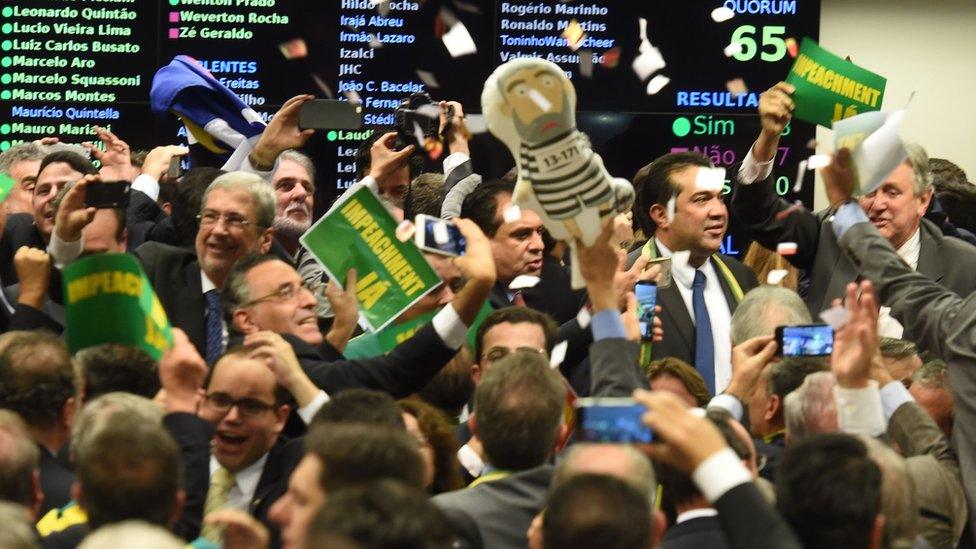
The vote took place amid raucous scenes and after a bad-tempered debate
Brazil's President Dilma Rousseff has suffered a blow to her hopes of staving off impeachment proceedings, after a committee voted they should go ahead.
The 65-member congressional committee voted 38 to 27 to recommend impeachment over claims she manipulated government accounts ahead of her 2014 re-election.
All eyes will now be on a full vote in the lower house starting on 17 April.
The issue has divided Brazil, with police preparing for mass protests in the capital, Brasilia.
The vote took place amid chaotic scenes with supporters and opponents of President Rousseff shouting slogans and waving placards.
Brazil political crisis: Why Dilma Rousseff faces impeachment calls
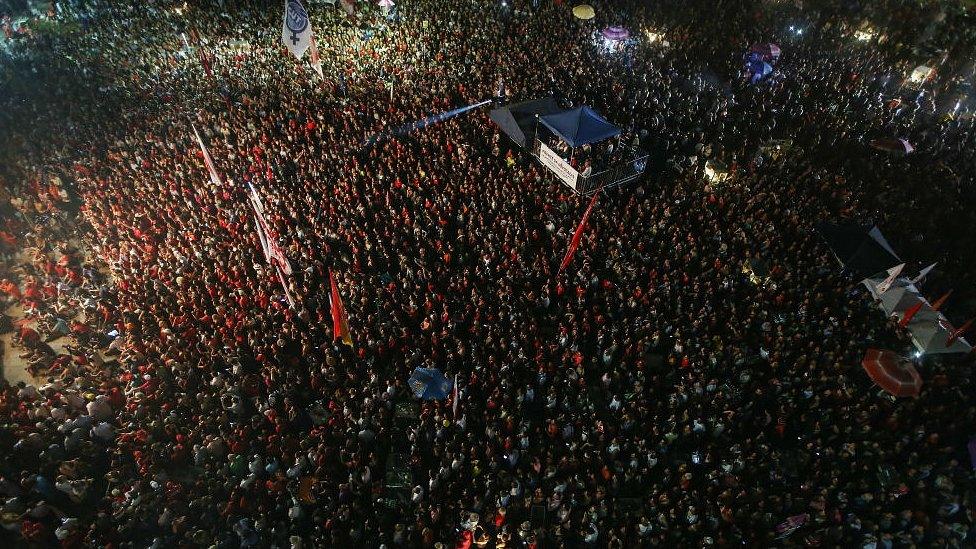
Thousands of President Rousseff's supporters rallied in Rio de Janeiro
The committee's vote is largely symbolic, but has been watched as a measure of how much support there is for the impeachment process ahead of the crucial vote in the full lower house of Congress, correspondents say.
There, a two-thirds majority is needed to send the matter on to the Senate. The latest opinion poll by the Estadao daily suggests 292 of the 513 members are in favour, with 115 against and 106 undecided.
The Senate would then have the power to suspend Ms Rousseff, put her on trial and ultimately drive her from office.
'Coup'?
During a bad-tempered debate leading up to the vote, Attorney General Jose Eduardo Cardozo, speaking for the president, said the impeachment process was "flawed".
"It is absurd to dismiss a president who has not committed crimes, nor stolen a penny. And such a process without crime or fraud, would be a coup," he said.
Ms Rousseff is accused of breaking fiscal laws by allegedly manipulating government accounts to make the deficit seems smaller than it was ahead of presidential polls.
Opposition lawmaker Vanderlei Macris said an impeachment would be important to Brazilian society and would bring change.
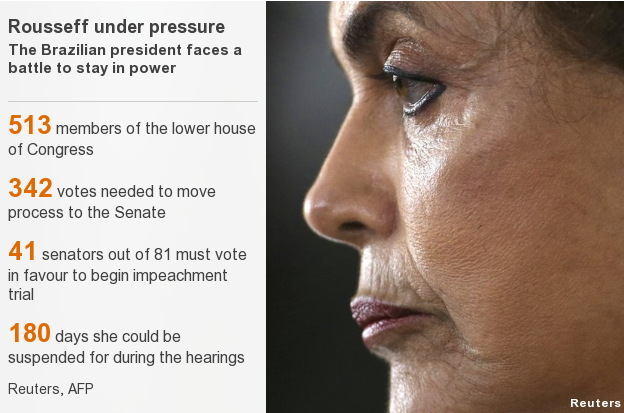
On Monday night, thousands of supporters of President Rousseff attended anti-impeachment rallies in Rio de Janeiro.
Speaking at one event, former President Luiz Inacio Lula da Silva dismissed the vote by the congressional committee, calling it "unimportant".
If the matter does go to the Senate and Ms Rousseff is suspended, Vice-President Michel Temer, from the opposition PMDB party, would take over temporarily.
But in another twist, Brazilian media ran an audio tape on Monday that appeared to be a draft address he planned to give, accepting the post and calling for national unity.
"Many people sought me out so that I would give at least preliminary remarks to the Brazilian nation, which I am doing with modesty, caution and moderation," he says on the recording.
His office said it was sent to aides erroneously.
The BBC's Wyre Davies in Brazil says that, given the fact that Mr Temer may also face impeachment proceedings, it appeared somewhat premature.
If Mr Temer is also suspended from office, the next in line to assume the presidency is the Speaker of the lower house, Eduardo Cunha.
However, he is facing money-laundering and other charges stemming from the Petrobras scandal.

Analysis by Wyre Davies, BBC South America Correspondent
President Rousseff's popularity has dived in recent months.
She has been hit by a faltering economy and a damaging corruption scandal focused on the state-controlled oil giant Petrobras, which has implicated several senior politicians and business leaders.
Although opinion polls regularly indicate that a majority of Brazilians support the impeachment process, President Rousseff and her supporters in the ruling Workers Party say the proceedings in Congress amount to a parliamentary coup.
They point out that, unlike many of the Congressmen sitting in judgment against her, Ms Rousseff has not been formally accused in the Petrobras scandal but is being "tried" on lesser charges of manipulating government accounts to conceal a growing deficit.

Brazil media try to guess road ahead
Most Brazilian newspapers comment on the heated nature of the debate which preceded the vote and note the shouts of "There won't be a coup!" from supporters of the president.
Daily O Globo, external points out that while the government expected the vote in the commission to go against it, it had been hoping for at least two more congressmen to side with President Rousseff.
It says the government was "surprised" by the size of its defeat. It also quotes Ms Rousseff's chief of staff, Jaques Wagner, who calls the 27 members of the commission who voted in favour of the president "heroes of democracy".
There is also talk of heroes in centre-right daily Folha, external, which quotes the head of the commission which recommended that the impeachment proceed as saying: "I did my part, and I did it as a hero would have done."
Many papers try to estimate the outcome of the upcoming vote in the full lower house and have conducted their own polls of the members of Congress.
Folha de S. Paulo, external says that 265 told the paper that they would vote for Ms Rousseff's impeachment.
This falls short of the 342 votes needed for the impeachment to go ahead. But as Folha's poll only reached 425 of the 513 members of the lower house of Congress, it leaves readers with little clue as to the final outcome.

What happens next?
Lower house vote: An impeachment vote is expected in the lower house on either Sunday or Monday. A two-thirds majority is required for it to go forward to the Senate. Latest surveys suggest the number in favour is short of the total needed to carry the motion.
Senate vote on trial: If Ms Rousseff case is sent to the Senate, a simple majority is enough to suspend her for up to 180 days while she is put on trial. Vice-President Michel Temer would step in during this period.
Impeachment vote: For Ms Rousseff to be removed from office permanently, two-thirds of the Senate would have to vote in favour. Mr Temer would remain president for an interim period should this happen.
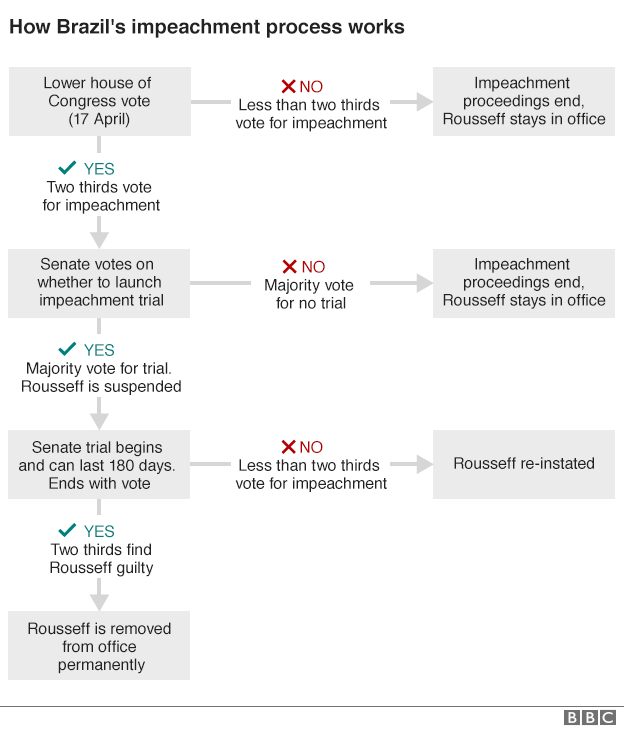
- Published31 August 2016
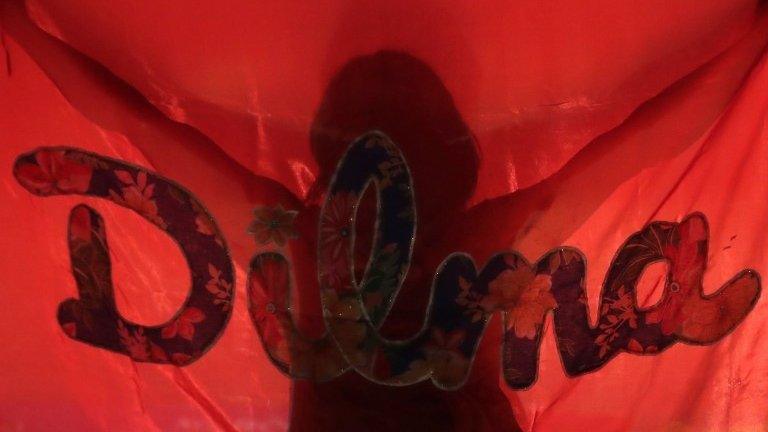
- Published11 April 2016
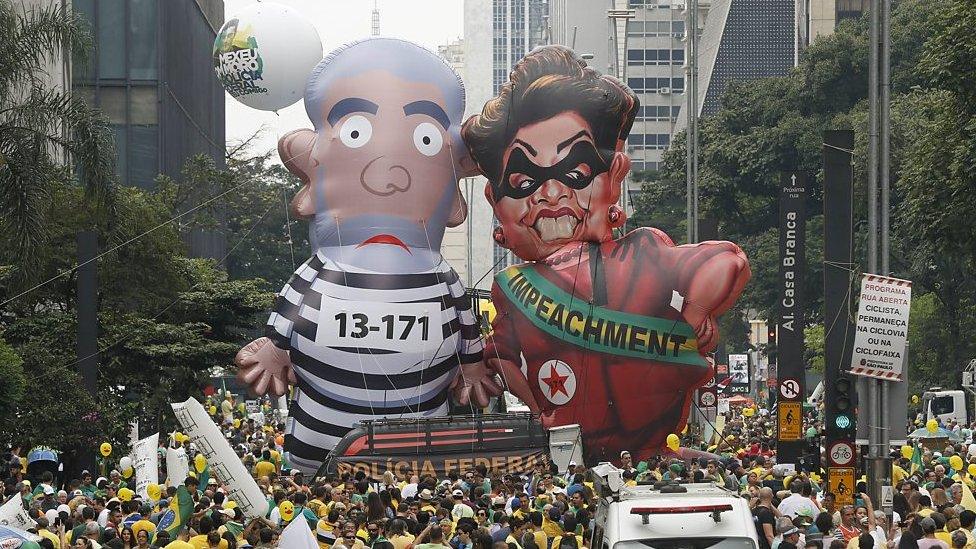
- Published29 March 2016
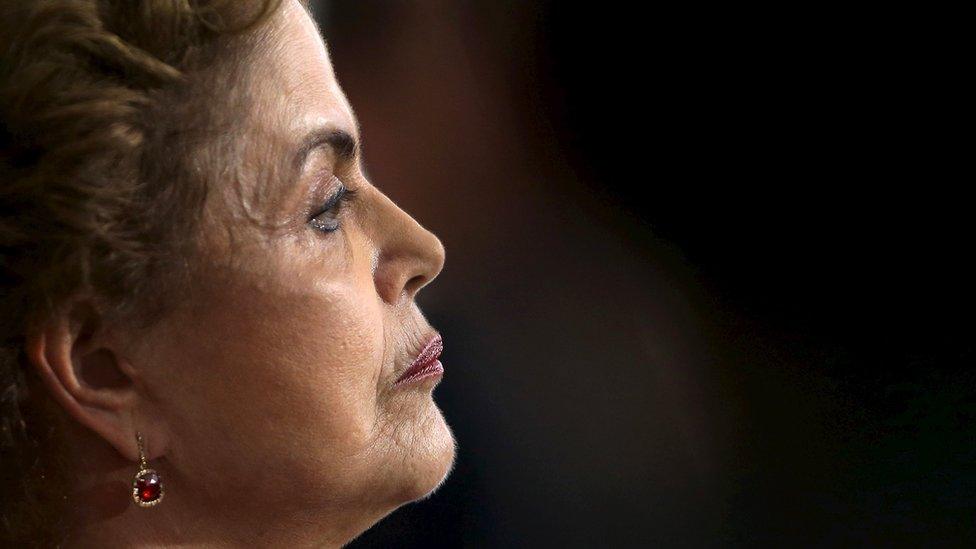
- Published8 April 2018

- Published4 March 2016
